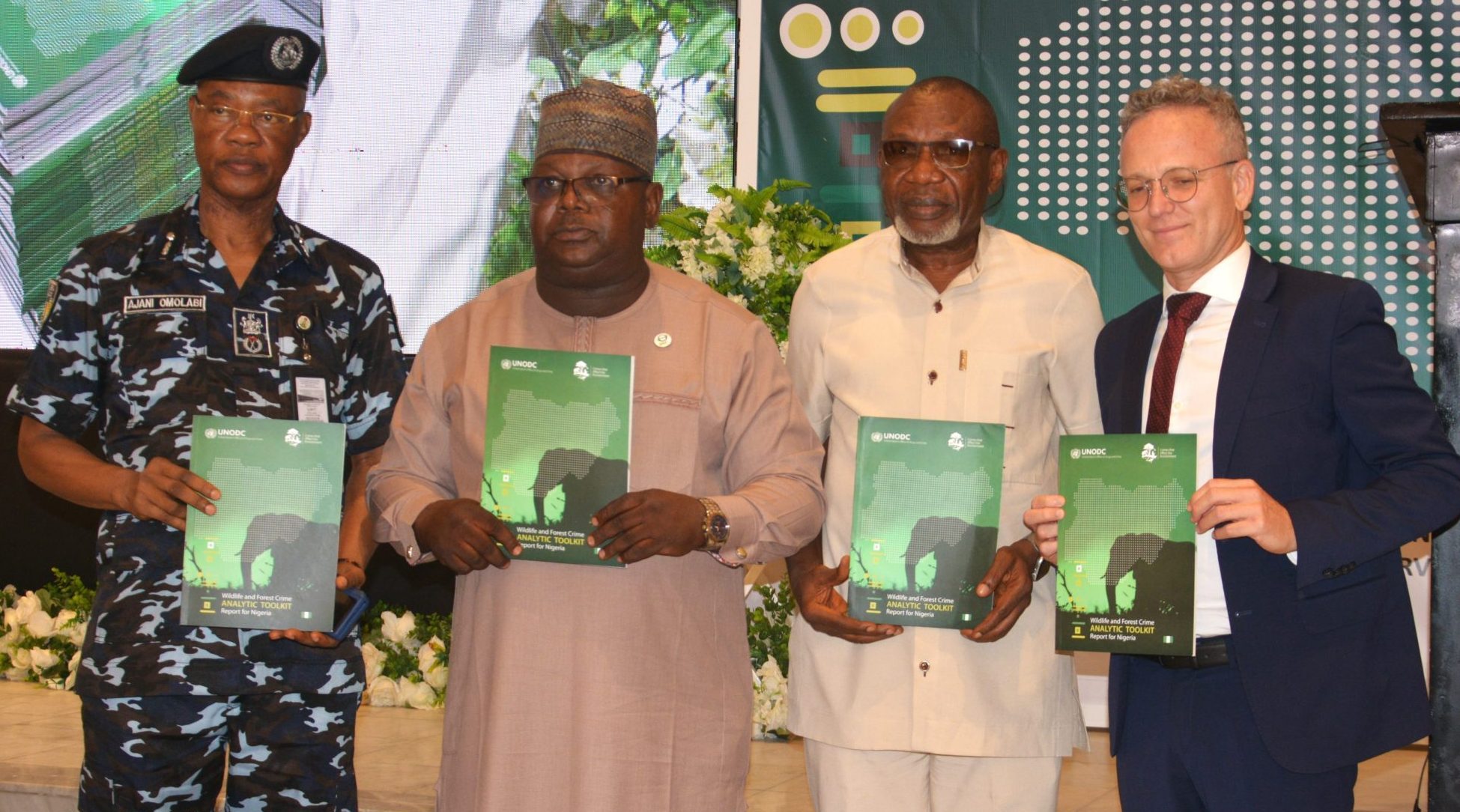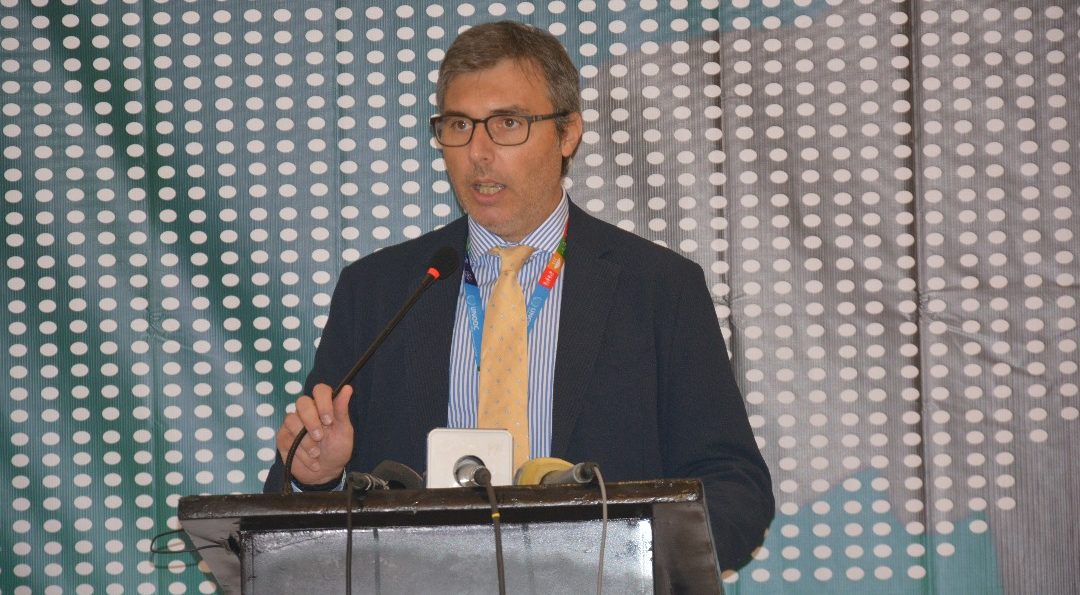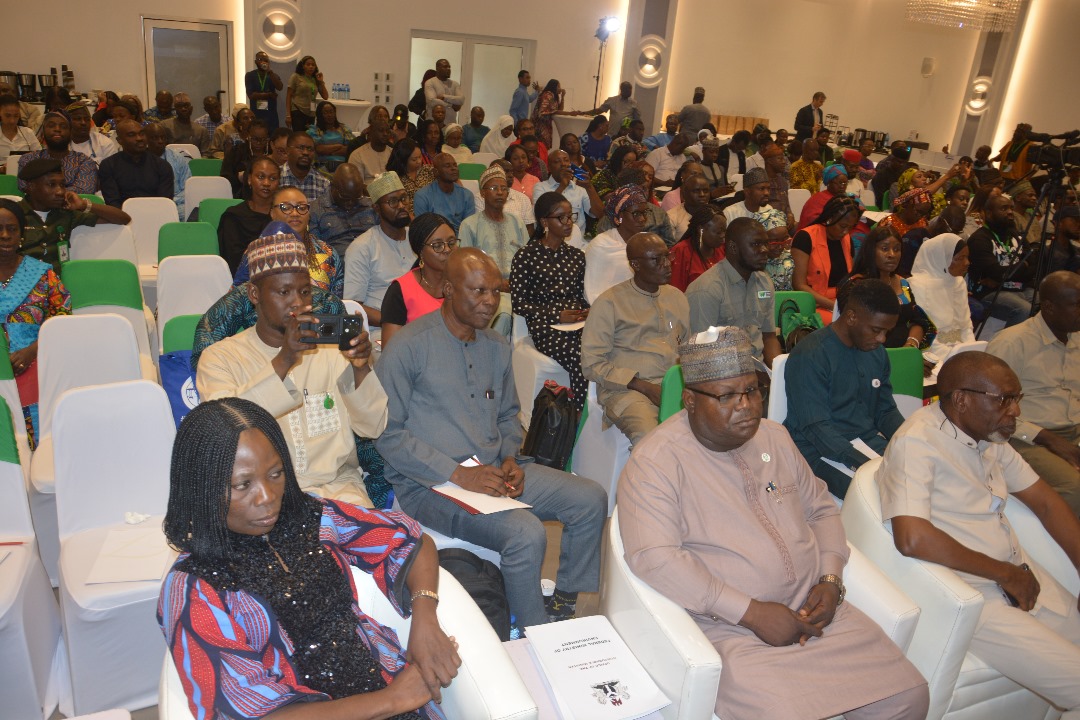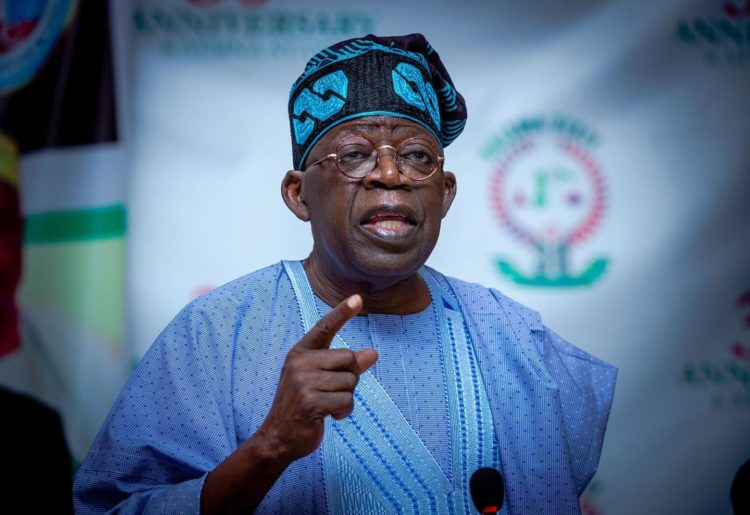The United Nations Office on Drugs and Crime (UNODC) has released the findings of the Wildlife and Forest Crime Analytic Toolkit, which was implemented to assess Nigeria’s response to rising wildlife and forest crimes. The report, launched in Abuja, Friday includes 33 key recommendations to strengthen the country’s criminal justice system in tackling these offenses.
The report identifies Nigeria as a transit hub for illicit wildlife products, such as pangolin scales and ivory, smuggled from Eastern and Central Africa. These products exploit the country’s porous borders and advanced transport infrastructure. The ICCWC Toolkit provided an in-depth analysis of Nigeria’s law enforcement, prosecutorial, and judicial systems in relation to wildlife crime.
Key recommendations include the support of the Endangered Species Protection and Conservation Bill 2024, the formation of a Joint Investigations Team involving the Nigeria Customs Service, National Environmental Standards and Regulations Enforcement Agency (NESREA), INTERPOL, and anti-money laundering agencies, and the establishment of a dedicated wildlife crime unit within the Directorate of Public Prosecutions of the Federation.
Representatives from the Ministry of Environment endorsed the report, with the Director of Planning and Research acknowledging Nigeria’s efforts in combating wildlife crime while urging further action to address the transnational nature of these crimes.
UNODC Officer-in-Charge, Danilo Campisi, highlighted urgent concerns regarding wildlife trafficking, referencing data from the 2023 Organised Crime Threat Assessment for Nigeria and the 2024 World Wildlife Crime Report. He warned that the depletion of Rosewood in Nigeria demonstrates the urgent need for action.
The European Union also supported Nigeria’s fight against wildlife crime, urging local authorities to take the report’s recommendations seriously.
READ ALSO: UNODC Urges Nigeria to Adopt Evidence-Based Drug Prevention
In closing, the Director of Forestry, Hajara Sami Umar, expressed appreciation to ICCWC for their collaboration in developing the toolkit and reaffirmed Nigeria’s commitment to strengthening national responses.







